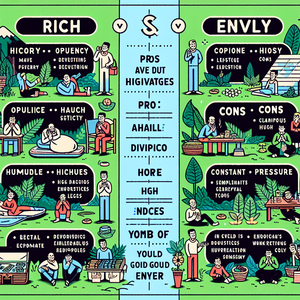From Classroom to Code: Transitioning into a Co-op

Classroom learning often involves theoretical knowledge and structured exercises, which may not fully prepare students for the dynamic nature of a co-op position. One of the first challenges students face is applying their academic knowledge to real-world problems. For instance, Sarah, a computer science major at a leading university, shared her experience of transitioning to her co-op at a tech startup: “In class, we learned about algorithms in a controlled environment, but during my co-op, I had to optimize existing code and troubleshoot issues on the fly.” This shift from theory to practice highlights the importance of adapting academic lessons to meet the demands of real-time projects. Moreover, the fast-paced environment of a co-op role can be overwhelming. Unlike the structured nature of classroom assignments, co-op projects often require students to think critically and creatively to find solutions quickly. This experience not only reinforces technical skills but also enhances problem-solving abilities, making students more adaptable in the workplace.
Leveraging Classroom Knowledge
While there is often a steep learning curve in co-op roles, students can leverage their classroom knowledge to navigate challenges effectively. Understanding core concepts such as data structures, software development methodologies, and debugging techniques can provide a strong advantage. For example, James, who completed his co-op at a large tech company, reflected on how his coursework in software engineering helped him during his co-op. “The group projects in my classes taught me how to collaborate with others and manage timelines, which was crucial when working on team-based projects in my co-op,” he noted. Additionally, coursework that emphasizes hands-on projects or simulations can better prepare students for co-op experiences. Engaging in hackathons or coding competitions can also provide practical exposure to team collaboration and time management—key aspects of any co-op position.
The Role of Soft Skills
In addition to technical capabilities, soft skills play a vital role in a successful transition from classroom to co-op. Communication, teamwork, and adaptability are often just as important as coding skills in the tech industry. Recent co-op participant Mia emphasized the importance of soft skills: “I realized that being able to communicate my ideas clearly and work well with my team was just as important as writing good code. We often encountered unexpected challenges, and our ability to communicate effectively helped us find solutions quickly.” To cultivate these skills, students can engage in group projects, join coding clubs, or participate in internships that require collaboration. These experiences will not only enhance technical abilities but also build the interpersonal skills that are crucial in a co-op environment. Participating in workshops on effective communication and conflict resolution can also be beneficial in preparing students for workplace dynamics.
Seeking Guidance and Mentorship
Mentorship can significantly impact a student's transition from classroom to co-op. Many universities have mentorship programs that connect students with industry professionals. Seeking guidance from someone who has navigated similar experiences can provide valuable insights and support. Emily, a software engineering student, recounted her experience with a mentor during her co-op: “My mentor helped me understand the company culture and encouraged me to ask questions when I was unsure about something. Having that support made my transition so much smoother.” Additionally, mentors can provide networking opportunities and career advice that can be instrumental in securing future positions. Building a relationship with a mentor can enhance a student’s confidence and provide a sounding board for ideas and concerns, making the co-op experience less intimidating.
Transitioning from classroom learning to a co-op position in software engineering can be challenging, but it is also an invaluable opportunity for personal and professional growth. Students can successfully navigate this important phase of their careers by leveraging academic knowledge, developing soft skills, and seeking mentorship. The experiences gained during co-ops not only enhance technical capabilities but also prepare students for a thriving future in the tech industry. As they embrace the journey from classroom to code, students will find that each challenge is just another stepping stone towards achieving their career aspirations. By approaching co-op opportunities with a proactive mindset and a willingness to learn, students can lay a solid foundation for a successful career in software engineering.
Front-End Developer
Google, Facebook, startups in the digital marketing space
Core Responsibilities
Design and implement user interfaces for web applications using HTML, CSS, and JavaScript frameworks like React or Angular.
Collaborate with UX/UI designers to create responsive and visually appealing layouts that enhance user experience.
Optimize web applications for maximum speed and scalability.
Required Skills
Proficiency in JavaScript, CSS, and HTML, with a solid understanding of asynchronous programming and the DOM.
Experience with version control systems, particularly Git.
Familiarity with RESTful APIs and web services.
Unique Qualifications
A portfolio showcasing previous projects or contributions to open-source initiatives.
DevOps Engineer
Microsoft, Amazon, various SaaS companies
Core Responsibilities
Automate and manage infrastructure, deployment, and production environments using tools like Docker, Kubernetes, and Jenkins.
Monitor system performance and troubleshoot issues to ensure high availability and reliability of applications.
Collaborate with development teams to improve the CI/CD pipeline and streamline software development processes.
Required Skills
Strong knowledge of cloud services (AWS, Azure, Google Cloud) and infrastructure as code (Terraform, CloudFormation).
Proficiency in scripting languages such as Python, Bash, or Ruby.
Experience with configuration management tools like Ansible or Puppet.
Unique Qualifications
Certifications such as AWS Certified DevOps Engineer or Certified Kubernetes Administrator (CKA).
Machine Learning Engineer
IBM, Google, startups focusing on predictive analytics
Core Responsibilities
Design and implement machine learning models to solve complex business problems, utilizing frameworks like TensorFlow or PyTorch.
Analyze large datasets to extract insights and optimize model performance through feature engineering and selection.
Collaborate with data scientists and software developers to integrate machine learning algorithms into existing software systems.
Required Skills
Proficiency in programming languages such as Python or R, with a strong understanding of data structures and algorithms.
Familiarity with data processing libraries like Pandas and NumPy, and experience with SQL for database management.
Strong mathematical foundation, particularly in statistics and linear algebra.
Unique Qualifications
A master's degree in computer science, data science, or a related field, along with relevant internships or projects.
Mobile App Developer
Uber, Airbnb, various tech startups
Core Responsibilities
Develop and maintain mobile applications for iOS and Android platforms using languages such as Swift, Kotlin, or React Native.
Collaborate with designers to create intuitive user interfaces and ensure a seamless user experience across devices.
Implement app features and functionality while optimizing performance and addressing security concerns.
Required Skills
Strong understanding of mobile app development frameworks and tools, including Xcode for iOS and Android Studio.
Knowledge of RESTful APIs for backend integration and experience with database management.
Familiarity with version control systems like Git and agile development methodologies.
Unique Qualifications
Experience or coursework in mobile app design principles, along with a portfolio of deployed applications.
Data Analyst
Deloitte, Amazon, JPMorgan Chase
Core Responsibilities
Collect, process, and analyze data to derive actionable insights that drive business decisions.
Create visualizations and reports using tools like Tableau or Power BI to communicate findings effectively to stakeholders.
Collaborate with cross-functional teams to understand data needs and support data-driven strategies.
Required Skills
Proficiency in SQL for database querying, as well as experience with data manipulation tools such as Excel or R.
Strong analytical and problem-solving skills, with an ability to interpret complex datasets.
Familiarity with statistical analysis and predictive modeling techniques.
Unique Qualifications
A degree in statistics, mathematics, or a related field, along with practical experience through internships or projects.


